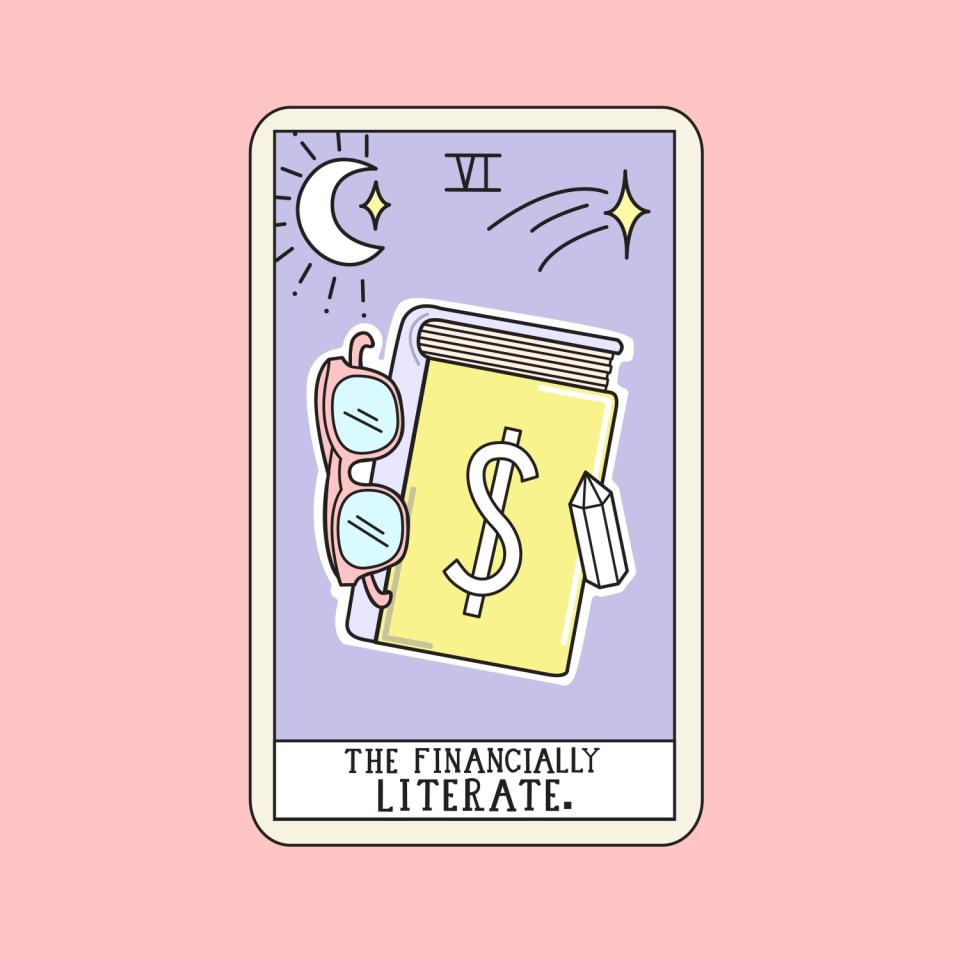Why Financial Literacy Is So Important
In this op-ed, college student Margot Nelson explains why she chose 2018 as the year to become financially literate.
I’m a high school graduate, I work two jobs, and I still don’t know much about personal finance. I’m attending Champlain College in Burlington, Vermont, and every other year (since 2013) its Center for Financial Literacy puts out a Report Card that grades all 50 states and the District of Columbia on how well they teach personal finance to high school students. My home state of Pennsylvania earned an “F” (an F!!) in 2017’s Report Card, which explains why I came to college with only a bare-bones understanding of credit, budgeting, and all those other financial things I was never taught. While my college requires personal finance education as a graduation requirement, the state of Vermont itself earned a “D” in the Report Card. In fact, across the whole country, only five states earned an "A" grade!
Financial literacy means that you can understand basic financial concepts and are able to manage your personal finances. Clearly, it’s a valuable life skill — and policymakers across the political spectrum of agree, from the current Republican secretary of education Betsy DeVos to Democratic Massachusetts senator Elizabeth Warren. Despite this, according to a recent report from the nonprofit Next Gen Personal Finance, only 1 in 6 high school students are required to take a personal finance course to graduate in the United States. What makes this statistic even more concerning is that women have even lower financial literacy rates than men nationwide.
The fact that women are at a historical socioeconomic disadvantage should come as no surprise. We get paid less and live longer, which means we need to survive longer on less money. We tend to go in and out of the workforce more frequently than men, which creates instability in our careers. On top of that, we have fewer savings than men do. These issues are exacerbated for single mothers and for the many women who end up being the sole breadwinner for their families — often these two are one and the same — who manage their finances alone.

TheFinanciallyLiterate_TVxSagepizza
I’ve experienced this firsthand as my parents go through the process of getting divorced. My mom was always the one who managed the family finances. Now, she and I talk more openly about what it really means to manage money, especially in situations like a divorce. However, not every woman is lucky enough to have years of family finance management experience to draw from if they get divorced. Sadly, in the U.S., one in five women will fall into poverty following a divorce, according to Annuity.org.
Personal finance had not been on my radar until very recently. I have the great privilege of attending college with scholarships and my parents’ help. So, I will be able to graduate without student loans, an increasingly rare scenario in our country where student loan debt continues to grow at an alarming rate. The students who are financially literate will have a much easier time navigating their loan repayments after college. But even without student loans, the financial realities of adulthood are becoming tangible as graduation begins to draw near. I’m majoring in Professional Writing — can I afford to be a freelance writer, or should I find a more stable position? What should my budget be in order to save enough money to rent an apartment? How can I build good credit? (I’m a planner by nature, and these are the questions that are stacking up in my mind.)
It’s at least comforting to know that there are accessible resources out there that can help young people, like me, educate ourselves about financial topics. Some colleges will have personal finance offices — such as George Washington University’s Global Financial Literacy Excellence Center — or even mandatory personal finance training, like what is required at Champlain, but there are also a lot of incredibly helpful resources online. My favorite resource so far has been The Financial Diet blog (the authors also just released a book). Their posts are relatable and easy to understand without sounding condescending. Mint also has an app which helps you create a budget and track your finances from your phone — super useful. If you’re looking for a book that compiles everything you need to know from taxes to credit scores, then Get a Financial Life by Beth Kobliner might be the resource for you.
I used to think that being financially literate was something that you figured out as you grew up. Turns out, personal finance is something you actually have to learn. So that’s why in 2018, this mathematically challenged humanities student is educating herself in the world of money. I want to know what’s going on around me, and my personal finances are no different. If I can understand how to manage my money, I can build a strong foundation for my personal and professional goals. After all, that’s what it’s really about, right? As exemplified by my mom, being financially literate means being independent.
Related: Everything You Need to Know Before Applying for Student Loans

